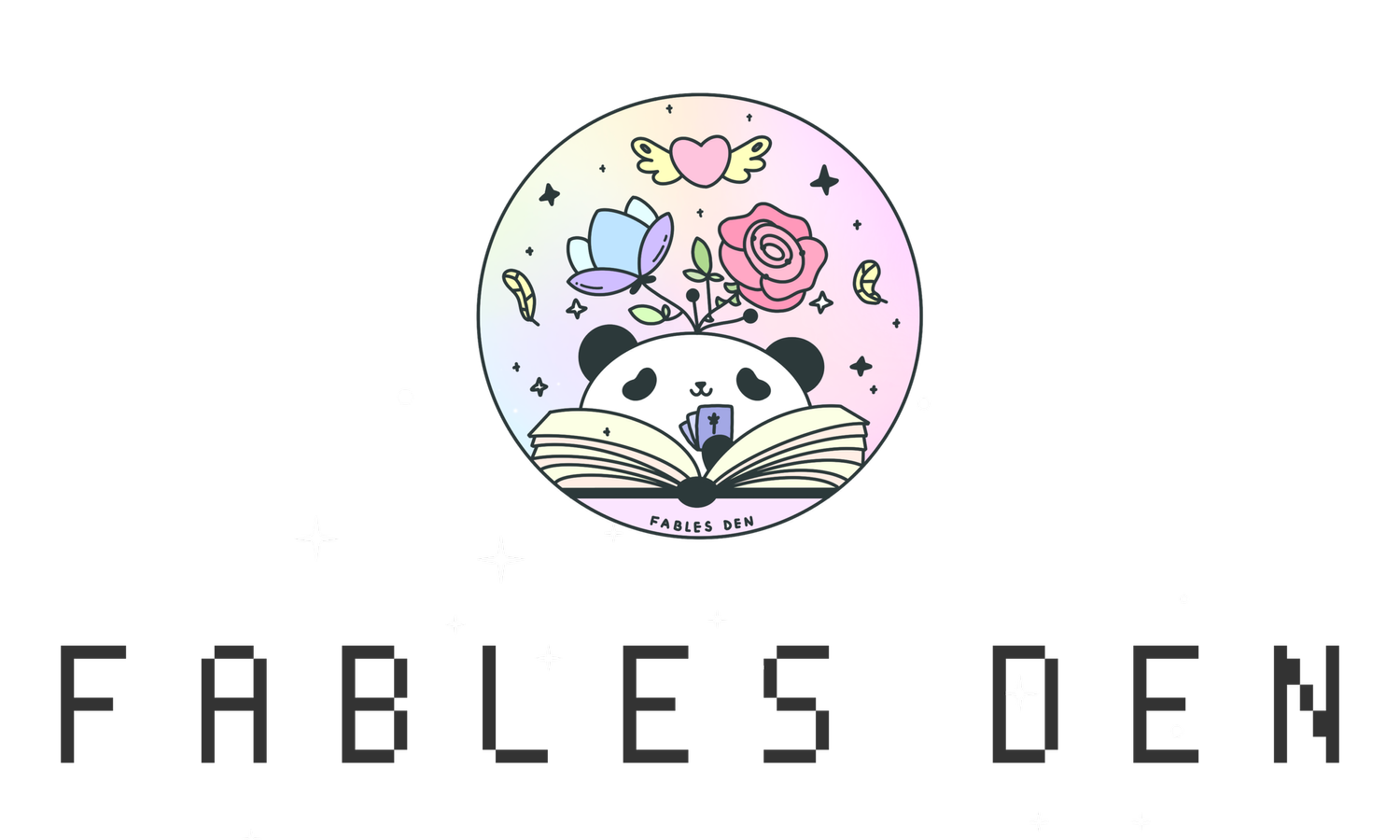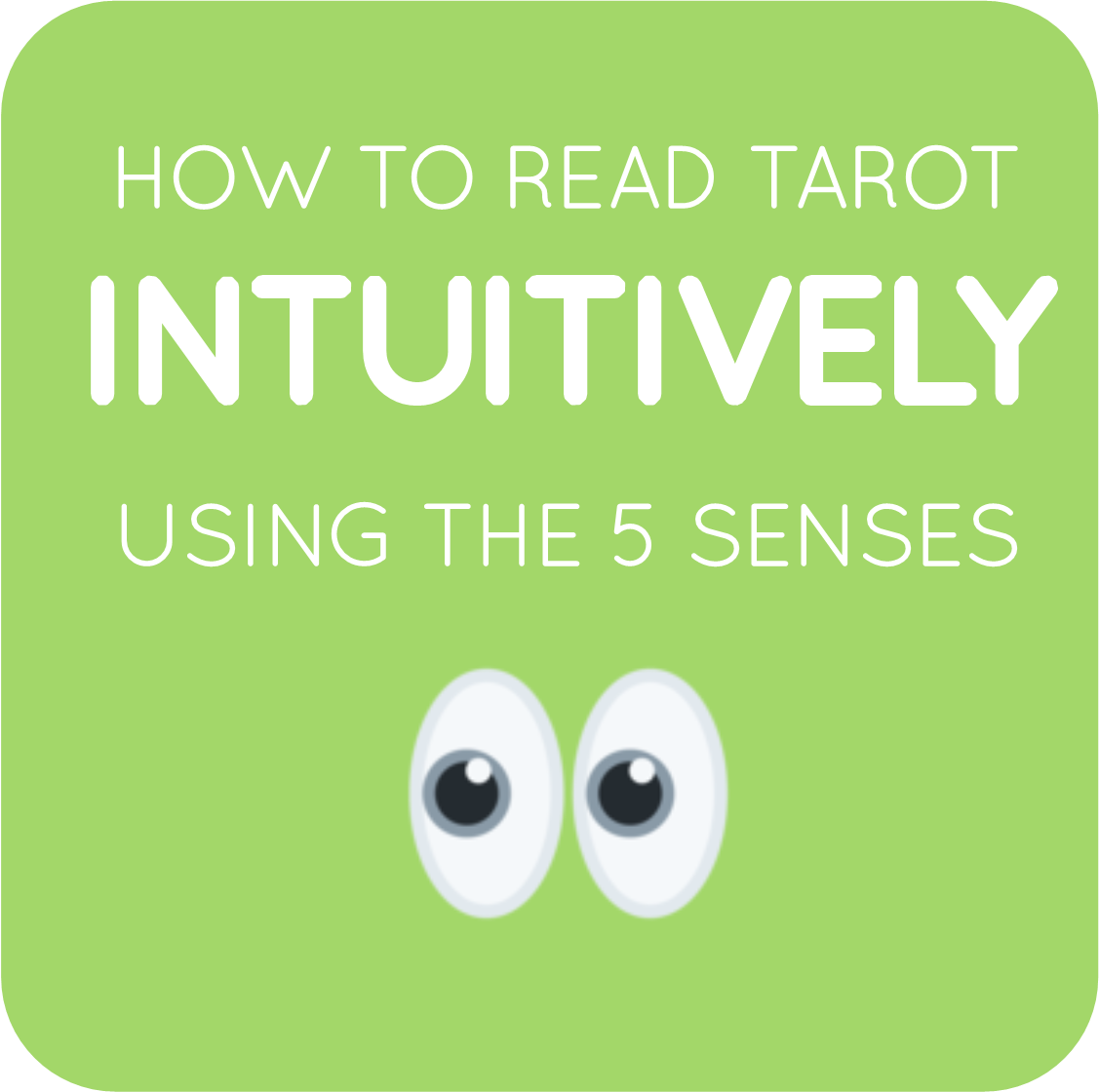How to Read Tarot Intuitively with the 5 Senses
Using your intuition to read tarot cards can be an abstract concept. It's based on a feeling, an inner knowing, a flash of truth, a moment of clarity. There's on right way or wrong way of doing it, and it's highly personal most of the time so it's really difficult to get a grasp at it.
It's personal because our perceptions are all wired differently.
Intuition, in my belief, is a way to channel information from the spirit-sphere. By spirit-sphere, I mean the general "zone" where our subconscious, the archeyptal energies, the collective unconscious and the shared human connection that we all have. Channeling is one thing, and depending on what's "wired" to be our primary modes of perception, we can receive those information in a myriad of ways.
For example, if you are textually and visually oriented (like me), you may be getting impressions or urges of imagination and seeing the pictures on a certain card move in a certain way. You may also hear a specific word over and over again. If you're more scent oriented, you may get a whiff of garbage when you pull out 5 of Swords, which may be telling you: you've got some emotional junk that you need to get rid of that is related to a 5 of Swordsy situation.
So an important part of developing your intuition is to understand how you perceive the world. Which senses (out of the 5 senses) are you most drawn to? A good way to figure this out is to take the Multiple Intelligences Assessment. I use this to evaluate the students I am working with in language learning to gain a better understanding of their personalities and qualities as a student. It's free and takes about 15-20 minutes to do: an excellent resource for self-understanding.
Another way to figure out what your "orientation" when it comes to your "senses" is to examine your hobbies and interests. If you're into music or if you are a musician, then it's probably safe to assume that you are quite sound oriented. If you're a bibliophile, you're probably more oriented with sight. If you like to learn things by doing and enjoy movement, you will probably be more connected with the sense of touch.
Of course, these aren't absolute indicators of how your perception is wired. But it's good to consider how you perceive the world since it will help you tune into the way you interpret information, which will in turn benefit your tarot reading process.
The 5 Senses
prompts to help you generate insight and ideas when working with tarot cards
Sight
What is the first thing on the picture that you are drawn to? Is it a colour? An object? A gesture? Use this as a point of emphasis in the context of that tarot card.
What are the characters doing? How are they interacting?
What is the movement present in this card? Are the various elements on the card moving towards each other? Are they scattering? Are they all charging towards one direction?
Imagine this tarot card is a scene from a movie. Use your imagination and keep playing that move in your head.
Sound
What is the first word that you "hear" in your mind?
What song or genre of music do you think this card remind you off?
What are the characters saying? "Eavesdrop" on their conversations.
What is the quality of their voices? Grubby? Fine and silky? How do you think the quality of their voice reveal about their character or the message they are sending?
Scent
What do you smell? What scent does the card remind you of? Does this compliment the traditional meaning of the card, contradict it, or contrast it?
Depending on your experience, what you get a whiff of can be a good smell or a bad smell. Is the scent accompanied by positive or negative feeling? What does this reveal about the card and the question you are asking?
How does the smell reflect the atmosphere or tone of the card?
Is the smell really strong? Or faint? Where do you think it's coming from on the picture? (E.g. The Man's boots, which can be linked to the root chakra)
Taste
What is the first food/drink that you are reminded of? Does this type of food have a specific role or memory attached to it in your personal life?
Is it a bad taste or a good taste? Or neutral?
Does the taste-memory inspire any reaction from you?
Are you reminded of any herbs, flowers, or incense that you have worked with? What are the attributes (physical and symbolic) of those scents?
Touch
Do you feel like you are holding a particular pose when you look at one of the characters?
Do you feel any sensations (such as pain, itch) when you stare at the elements on the card?
Do you feel like you are holding or letting go of something? What is it that you may be holding?
Are you reminded of any texture or surface that you have touched or seen before?
Tips & Examples
on Using the 5 Senses as Prompts
To start with, do not expect dramatic sensory episodes in which you receive a grand vision from the card or hear a clear audio of Coldplay play next to your ears. It could happen, but most of the time, intuitive insights are very quiet and subtle. What you "see" can really be a "feeling" of what you see. You wouldn't necessarily "see" the Devil thrashing the chains about, but most likely what you'll get is "I think the image is moving this way". Go with that voice. Follow that feeling.
Some of your insights or impressions may feel completely random or weird and may defy the traditional key words or feelings of the card, but go with it. Don't censor yourself or over-analyze. Allow that "feeling" to finish itself first, then analyze how that feeling is interacting with the card and what it is indicating.
Don't base your observation completely based on a guidebook; listen to your first impression. For example, you may get a more positive outlook when you look at the 10 of Swords card. You may suddenly feel like "those swords on his back are actually fake and he's not wounded--he's just lying on his stomach with ketchup streaming down his shirt!" Which may be telling you: hey, that friend you think are super stressed out and in need of your help? They are enjoying the attention you give them as they perform or exaggerate their misery and they're not actually hurting as much as they say they are.
I'm not asking you to throw away your books, by the way! Once you have solidified a "feeling" and have a clearer sense of your intuitive insight, you can contextualize this insight within the traditional meanings of the card, integrating the knowledge and awesome powers from both sides of your brain. For example, if you are looking at 10 of Pentacles, and you feel like one of the characters is being "banished", which doesn't immediately align with the theme of abundance, family and legacy of 10 of Pentacles. However, you can contextualize this feeling in the theme of 10 of Pentacles. The feeling of banishment can be saying that you are lacking a sense of belonging in your community, feeling alone, left out or "banished" because you don't seem to jam with the spirit of the community and what it is trying to leave behind as a legacy.
When reading with multiple cards or a tarot spread as a whole, "drift around" the cards and look at all the images. Pay attention to how they are interacting with each other and see if you can grasp a general "theme" or "feeling" that is emerging within you, then you can work with this feeling + look at the individual cards to see how the details would develop.
The best way to validate your intuitive insights is practice on a willing, enthusiastic and honourable guinea pig who gives quality feedback. If you can find a forum or a few good tarot buddies that will provide you with detailed feedback and are willing to address your reading in detail, that's one of the best things you can hope for. That's how I came to trust my intuition in the beginning--through exchanges and offering free readings for feedback. A lot of the times reading intuitively will feel a bit wishy-washy because intuition is hard to "prove", but when you receive awesome feedback, you will know that you're hitting the right spot and you're on the right track.
Closing
I hope these prompts and general tips have helped you with your intuitive adventures! Let me know in the comments section which sensory mode you are most aligned with, or if you have suggestions about content/prompts you would like to see more of. :)
For more resources, check out these Youtube videos that I made to help you strengthen and deepen your intuition + your intuitive practice with tarot!
If you are looking for a more in-depth guide on how to cultivate an intuitive tarot practice, check out my e-book. :)
Tarot Beginnings: An Introductory Guide to the Story and Study of Tarot


